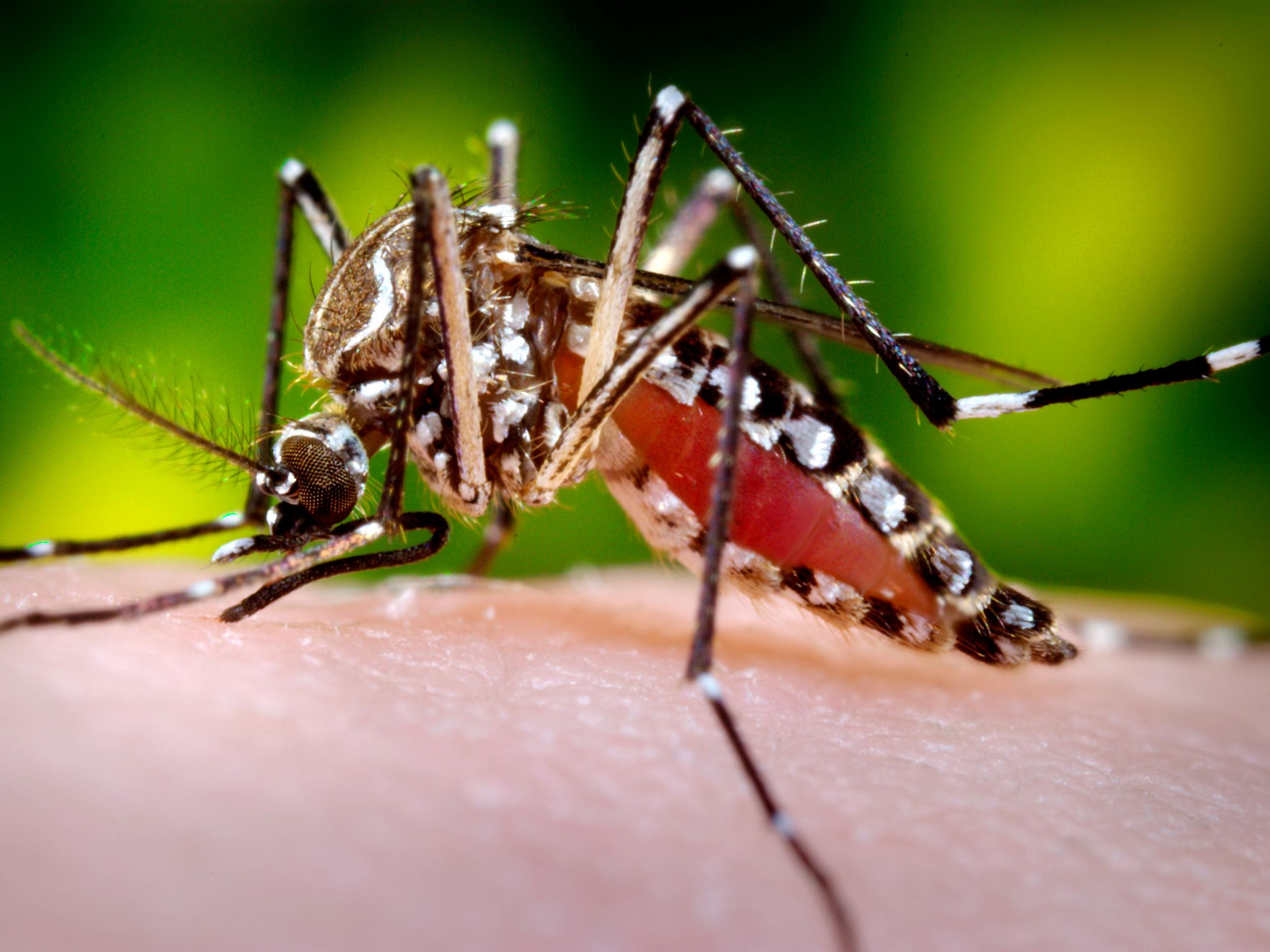'Birth control’ insecticide could stop mosquitoes being able to hatch after key protein identified
'This could be a next-generation tool that could be applied to bed nets and other areas frequented by mosquitoes'

Your support helps us to tell the story
From reproductive rights to climate change to Big Tech, The Independent is on the ground when the story is developing. Whether it's investigating the financials of Elon Musk's pro-Trump PAC or producing our latest documentary, 'The A Word', which shines a light on the American women fighting for reproductive rights, we know how important it is to parse out the facts from the messaging.
At such a critical moment in US history, we need reporters on the ground. Your donation allows us to keep sending journalists to speak to both sides of the story.
The Independent is trusted by Americans across the entire political spectrum. And unlike many other quality news outlets, we choose not to lock Americans out of our reporting and analysis with paywalls. We believe quality journalism should be available to everyone, paid for by those who can afford it.
Your support makes all the difference.A form of “birth control” for mosquitoes could be used to tackle populations of the creatures in areas where insect-borne diseases are rife.
The discovery of a key protein involved in forming mosquito eggs has provided scientists with a new target in the fight against them.
Globally more than 500 million people are afflicted with diseases carried by mosquitoes, like malaria, Dengue fever and the Zika virus, which claim the lives nearly one million people.
Previous efforts to prevent the disease have included sterilising male mosquitoes and editing their genes to block female reproduction.
But the new strategy being proposed by a team of researchers from the the University of Arizona would involve an insecticide that tampers with the newly discovered protein.
The scientists found that blocking the activity of this substance resulted in females laying eggs with defective shells. These caused the insect developing inside to die.
Crucially, the researchers found this protein only exists in mosquitoes, meaning if a drug that prevents it from functioning can be widely applied it will only harm these insects.
"We think this strategy may have a much lower chance of harming other organisms than what is being used today," said Professor Roger Miesfeld, one of the scientists behind the research.
Conventional pesticides work well at killing mosquitoes and were initially viewed by researchers as a viable way of wiping out diseases like malaria.
However, the potency of these chemicals mean they can have far-reaching effects in ecosystems, killing other insects and harming larger animals.
It has also become apparent in recent years that mosquitoes are beginning to develop resistance to some of the most widespread chemicals used to control them.
With this in mind, the scientists said they were hopeful their discovery will provide a way to drive down mosquito numbers in high-risk areas without affecting beneficial insects like honeybees.
"Since the days of DDT, we have known that mosquito population control works to reduce the incidence of human disease,” said Professor Miesfeld. “This could be a next-generation tool that could be applied to bed nets and other areas frequented by mosquitoes."
Dr Jun Isoe, who led the project, identified the protein by searching for genes that were unique to mosquitoes, ultimately settling on the previously unknown EOF-1 gene.
The team then created small molecules that stop the proteins working properly, and found that once inserted into mosquitoes these molecules prevented the female insects from producing functional eggs until the end of their lifespan
While techniques that wipe out huge numbers of mosquitoes are tempting, there are concerns that such large-scale engineering of ecosystems could have unintended knock-on effects, even if limited to a single species.
Join our commenting forum
Join thought-provoking conversations, follow other Independent readers and see their replies
Comments